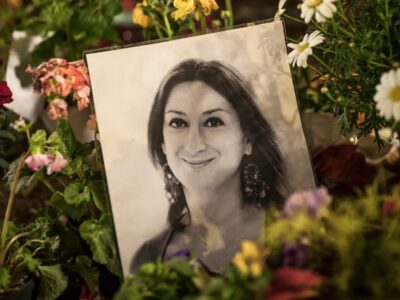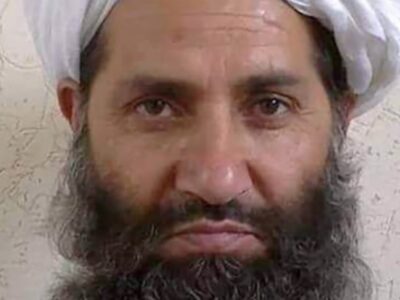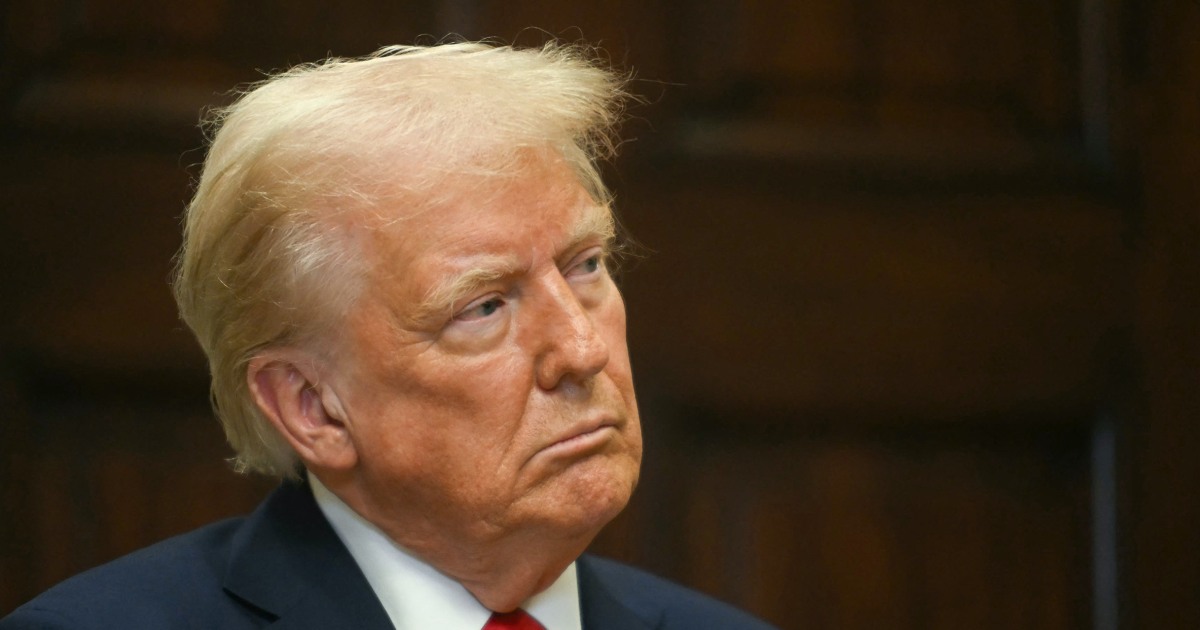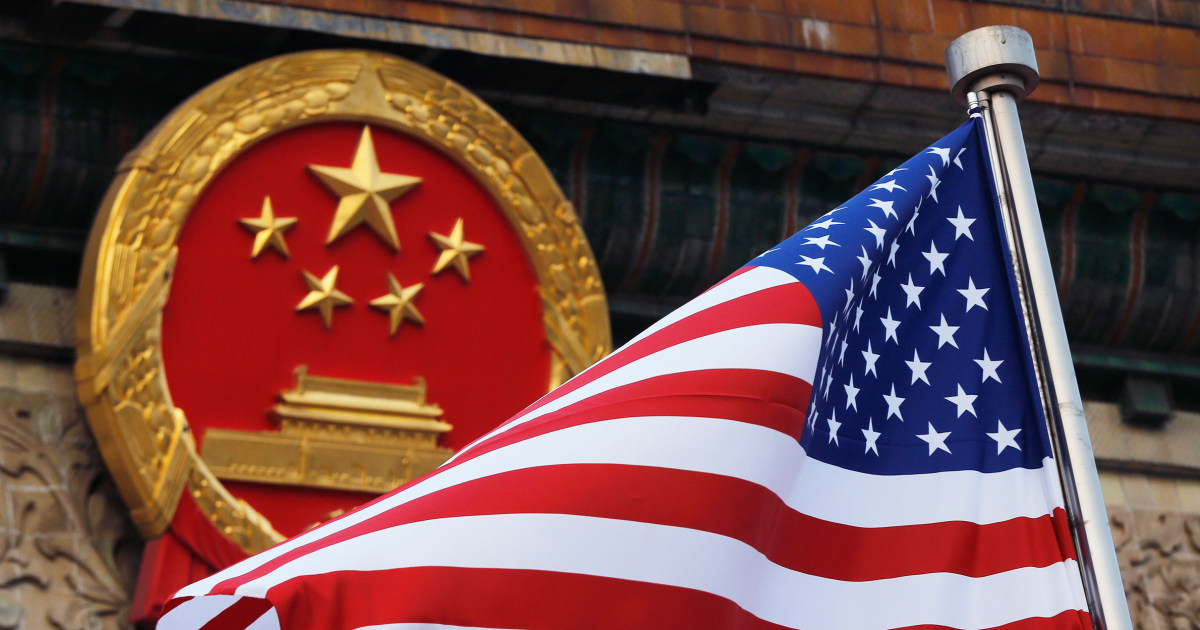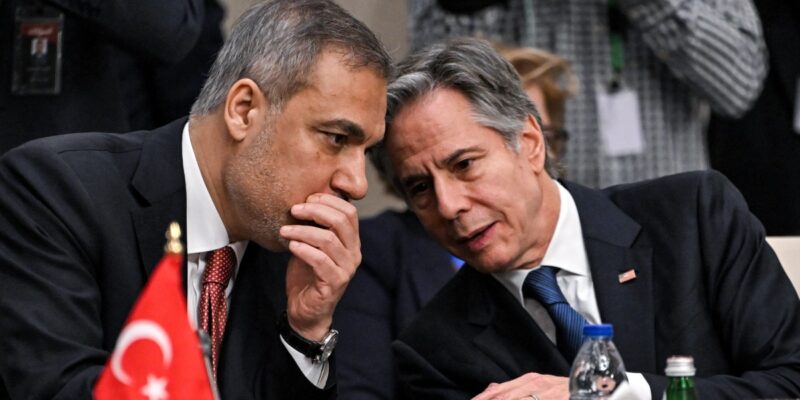
Secretary of State Antony Blinken said Saturday that the U.S. has made direct contact with Syria’s Hayat Tahrir Al-Sham (HTS) rebels as they transition from a militant insurgency toward a more legitimate governing authority.
“We’ve been in contact with HTS and with other parties,” Blinken said after talks in Aqaba, Jordan, with diplomats and representatives from several Arab nations.
The U.S. designates HTS a terrorist organization, making it legally impossible to work with the group, but contact underscores ongoing efforts to change that designation as the U.S. and its allies look to support Syria’s transition from Bashar al-Assad’s rule.
In a joint statement after the meeting, the governments of the U.S. and Turkey, the E.U., and Arab countries called for “a more hopeful, secure and peaceful future” in Syria, stressing respect for women and minorities and preventing “the reemergence of all terrorist groups.”
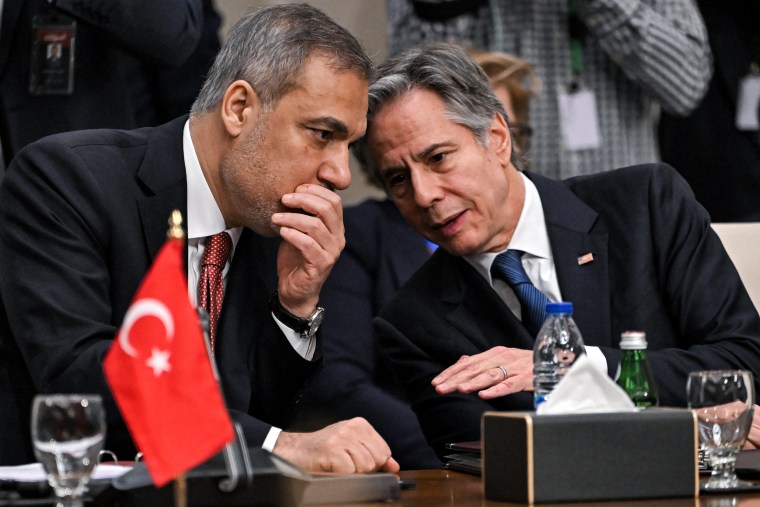
Turkish Foreign Minister Hakan Fidan and U.S. Secretary of State Antony Blinken in Jordan on Saturday.Andrew Caballero-Reynolds / AFP – Getty Images
The statement stressed that “the transitional political process must be Syrian-led and Syrian-owned [and] produce an inclusive, non-sectarian and representative government.”
No representatives from Syria were at the meeting.
The talks reflect cautious optimism over HTS’ evolving role in governing Syria, with early signs of efforts to establish stability after 13 years of civil war, and within the nation’s many factions.
Front of mind for Washington is the return of American journalist Austin Tice, who disappeared in Syria over a decade ago. Blinken said in Jordan that he had emphasized the importance of finding Tice in talks with Syria’s new parties.
Tice is thought to have been taken captive near Damascus in August 2012 while he was covering the country’s civil war. But while thousands of prisoners were released when HTS took control of Damascus, Tice’s whereabouts remain unknown.
Obaida Al-Arnaot, an official spokesperson, said Syria’s interim government had tried to find Tice, who is 43, to reunite him with his family but had so far had no luck. President Joe Biden told reporters last week that efforts to pinpoint his location in Syria were ongoing.
In another sign of the shifting dynamics, Turkey announced Sunday that it has reopened its embassy in Damascus after 12 years, while schools and universities have also resumed operations in areas formerly controlled by Assad.
Turkish Defense Minister Yaşar Güler has said his country is ready to offer military training to Syria “if the new administration requests it.”
In comments authorized for publication Sunday and translated by Reuters, Güler said Turkey saw no signs of a complete Russian withdrawal after satellite images appeared to show Russian forces packing up and dismantling military equipment at one of their key bases in Syria.
“I don’t think the Russians are going to leave,” he said. “They’ll do everything they can to stay.”
As the transition continues, there is concern for Syria’s minority groups. Kurdish communities, in particular, have expressed wariness about HTS, given the group’s past association with Al Qaeda and the uncertain future of ethnic and religious minorities under its control.
In a message to the Kurds, HTS leader Ahmed Al-Sharaa, formerly known by the nom de guerre, Abu Mohammad al-Jolani, sought to ease fears with a statement Saturday, stating that Kurds are “part of the homeland” and that “there will be no injustice” against them.
“The coming Syria will have the Kurds as its foundations, and we will live together in it, and everyone will take their rights,” he said.

Women pose for a photograph with rebel fighters in Damascus last week.Omar Sanadiki / AP
The message is part of HTS’ ongoing efforts to project a more moderate image and distance itself from its Al Qaeda past, even as the U.S. continues to view the group as a terrorist organization. In 2018, the U.S. placed a $10 million bounty on Al-Sharaa’s head.
Israel remains deeply concerned about extremists’ gaining power in neighboring Syria, and it carried out multiple airstrikes on Syrian weapons depots and air defenses overnight into Sunday, according to the Syrian Observatory for Human Rights.
The attack appears to be the latest in a series of airstrikes that Israel says are aimed at preventing Assad’s arsenal from falling into the hands of militants.
But U.S. engagement with HTS may signal a potential shift in Washington’s approach, sparking hopes that it may eventually remove the strict sanctions, which it has imposed on the country for decades and intensified at the start of the civil war in 2011.
“We can hopefully see a quick end to the sanctions so that we can see, really, a rallying around building of Syria,” United Nations envoy Geir Pedersen told reporters during a visit to Damascus to meet the new interim government.
Biden has already outlined continued U.S. involvement in Syria, without commenting on whether Washington would remove or reconsider the designation.
“We will engage with all Syrian groups, including within the process led by the United Nations, to establish a transition away from the Assad regime, toward independent, sovereign and independent,” he said last week. “Syria with a new constitution, new government that serves all Syrians.”

